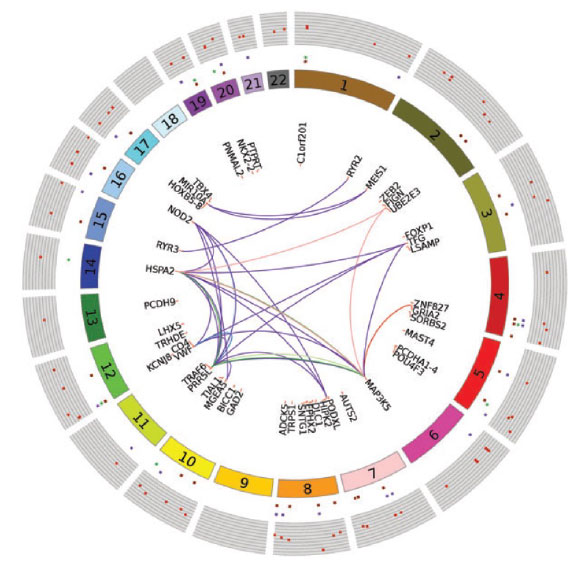Pharmacoepigenetics Studies
Epigenetics is the study of reversible changes to chromatin. These changes, or epigenetic marks, include DNA methylation and histone modifications. Epigenetic marks can lead to changes in gene expression and their normal function in the body is to regulate cell development, tissue differentiation and response to environmental changes. When epigenetic regulation goes awry, diseases can often result and a growing body of evidence implicates epigenetics in disorders as diverse as cancer, diabetes, schizophrenia, depression and Alzheimer’s. In our lab, we are interested in how epigenetic changes with age affect drug metabolism. We also have longer term interests in functional characterization of potentially pathogenic “epimutations” and how these can be reversed by drugs.

Figure caption: Epigenetic
Plot of the genome-wide distribution of aging-related DNA methylation changes, with chromosomes plotted clockwise from the top. Genes that act in the same biological pathways have been linked by lines in the center, where lines are color coded by pathway membership. See McClay et al. Human Molecular Genetics 23 (5) 1175-1185.